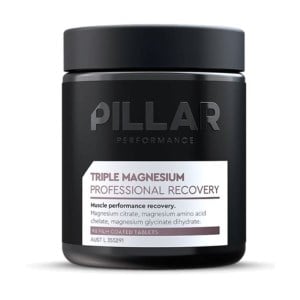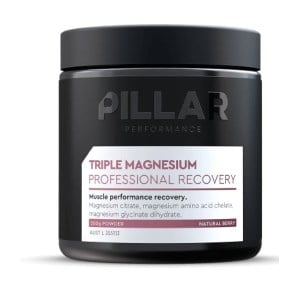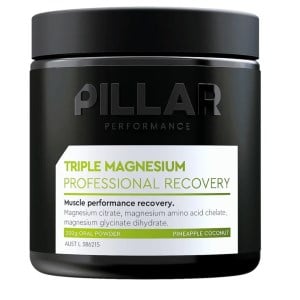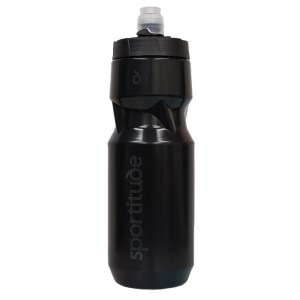Self-Care Guide: How To Get Your Health & Happiness Back On Track

Special events like Easter invite us to indulge – celebrating the joy of family, friends and food. You may feel like you need to reboot your body after the holidays when indulgence transitions to overindulgence, but we’re here to tell you it’s OK.
We’re going to help you let go of the guilt and look forward. This is your guide to self-care and recovery in the days and weeks post-holiday, celebration or any time you feel you need to get your physical and mental health back on track.
Unlike potentially harmful detox cleanses or fad diets that can leave you deprived of certain nutrients and build negative relationships with food, these practical and easy-to-follow tips are sustainable.
It’s a sensitive topic, but your health and nutrition should be about empowerment, not punishment. With a focus on positivity in your mental wellbeing, variety in your choices and balance (not perfection) in your overall nutrition, you can make a conscious effort to cultivate nourishing and enjoyable eating in your life.
Please note: This self-care guide is general advice only. If you have any issues or concerns around eating disorders or your mental health, please consult a healthcare practitioner for personalised and professional help.
Reframe negative self-talk to shape a positive outlook
Your mental health has a powerful influence on all aspects of your life – from your motivation, to what you eat, to how you sleep.
After falling off track of your fitness, nutrition or weight loss journey, it’s common for negative self-talk to creep in. Not only is this discouraging, lowering self-esteem, but it is obstructive to your progress and goals. A helpful exercise is to catch, reflect on, then reframe these negative thoughts. Ask yourself;
Are my negative thoughts evidence-based, or am I being overly hard on myself?
The answer is more than likely the latter, and fixating on negative thoughts won’t have a positive or productive outcome but may facilitate anxiety. Often, it's unrealistic expectations - a focus on being perfect rather than celebrating your overall success - that can trigger this negative thinking and filter out positivity.
Reframe your negative self-talk with a focus on being compassionate, non-judgemental and supportive of yourself – as if you were giving advice to a close friend. This will help put the negativity spiral at rest and reignite your motivation.
With consistency and practice, this thought reframing or cognitive reframing technique will come more naturally as part of your mental toolkit. It can help you embrace a neutral or positive perspective and inspire you to reach your goals.
Example 1:
- Negative thought: I can’t trust myself to stick to my diet. I should just give up.
- Reframed thought: Everyone overeats sometimes. I’ll plan some nutritious meals to get back on track.
Example 2:
- Negative thought: I always fail to eat right and exercise. It’s not worth it, what’s the point?
- Reframed thought: It's OK to not be perfect. I'll make a nutrition and exercise plan that's realistic, flexible and works for me.
Example 3:
- Negative thought: I can’t believe I ate all that junk food. Now I feel slow and sluggish. I deserve it.
- Reframed thought: When I eat nutrient-dense food, I feel happier and more energised. It’s OK to slip up sometimes though. The past can't stop me from making positive choices that support my goals moving forward.
Should you throw out all the ‘junk’ food?
Throw out all the junk food is common advice regarding weight loss journeys and maintaining a healthy lifestyle. For some of us, throwing out 'junk' food or giving it to a friend that understands your goals can feel liberating - and if that works for you that's OK. This is particularly true if the food does not bring you any joy.
However, the emotion behind it matters. Often, throwing out 'junk' food is a guilt-based response to overindulging, and an action based on fear – fear that you don’t have the willpower to say “no” when a craving hits.
Keeping temptation out of reach may seem effective in the short-term, but the results are typically temporary. In terms of your mental health, it can feel like a punishment and be demoralising. This self-care guide will help you regain control and build trust in yourself, focusing on your long-term success.
Fear can be responsible for harbouring a negative relationship with food, even to the point of villainising it, which can sabotage your healthy eating goals. For example, labelling sugar as ‘bad', ‘off-limits’ or ‘junk’ can be a harmful approach in terms of your mental health and the longevity of your overall healthy nutrition plan.
By putting strict restrictions on what you eat – essentially making ‘bad’ food forbidden - your craving for that food is likely to increase the more you feel deprived of it. It’s a psychological response that can take place even if you’re feeling full and satisfied physically. Skipping meals can have a similar effect – increasing your hunger and potentially resulting in overeating in future meals.
You may ban added sugars or carbohydrates from your home and have temporary weight loss as a result, but in the days or weeks following it’s not uncommon to have a slip up when exposed to these foods – or have restrictions turn into food obsessions. Perhaps at a celebration or night out, you find yourself falling to temptation and overcompensating by eating these ‘forbidden’ foods beyond the point of giving you fulfilment or joy.
Guilt follows, and although guilt may keep you avoiding specific foods for a time, the act of avoiding them of course leads you to craving them more – creating this vicious cycle. It shouldn’t be about all-or-nothing. You don’t have to feel trapped or out of control.
Happiness & nutrition tip: Focus on making healthy lifestyle choices, rather than restrictive dieting
It’s important to break the pattern of shame and understand all food has a place in your life if you wish it to (with the exception of allergies and food intolerances) and you are otherwise healthy. You shouldn’t have to deny yourself the things you enjoy. Rather than focusing on certain foods as ‘bad’, reframe them as ‘treat’ foods that you can enjoy in moderation.
The term ‘diet’ itself can have negative connotations – perceived as a punishment, potentially with a focus on eliminating entire food groups from your nutrition. Rather than focusing on dieting which is often unsustainable, focus on a more flexible approach to eating that looks at your entire nutrition, without targeting single foods. Think about how your nutrition choices – including balance and variety - can support a healthy and happy lifestyle now that you can maintain in the future.
Enjoy mindful eating
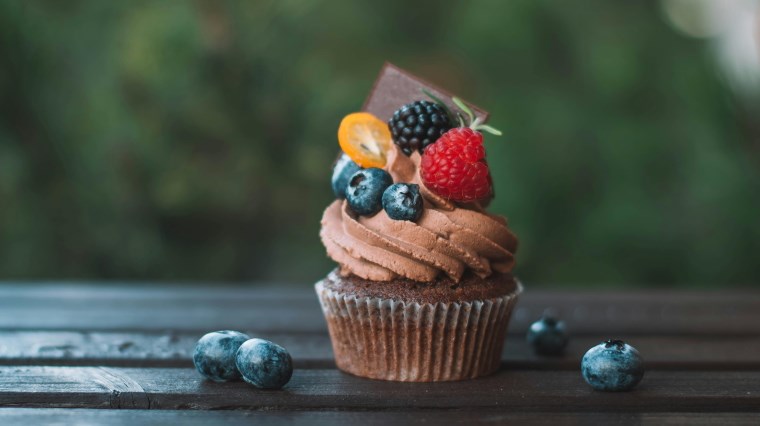
We all benefit from including more nutrient-dense foods in our meals such as wholegrains, fruits and vegetables – not only to nourish our bodies, but to nourish our mental health.
However, this doesn’t mean you can’t occasionally enjoy a piece of chocolate or cake as part of a self-care ritual that supports your emotional wellbeing. Yes, as runners our focus from a performance and recovery perspective often is on food as fuel. However, food can be so much more than that – such as for emotional enjoyment.
Enjoying velvety, melt-in-the-mouth chocolate is pleasurable – so savour it. Eating mindfully is an effective technique to enjoy ‘treat’ foods like chocolate in moderation without judgement, as well as to build positive experiences when eating nutrient-dense meals.
Eating is a sensory experience. Mindful eating involves breaking down the process and immersing yourself in the moment. This is where you can really benefit from the emotional joy of ‘treating yourself’ without overindulging.
With practice, mindfulness can build a better awareness of your thoughts, emotions and body, making it easier to distinguish between emotional hunger and physical hunger signals.
Tips for mindful eating:
- Turn off the TV or other distractions
- Immerse yourself in what the food smells/tastes/feels like
- Chew slowly and thoughtfully with small bites to slow down the process and really be in the moment
- Be aware of the sensations your mind and body are experiencing now and after you enjoy the food (e.g. fulfilment, satisfaction)
Mindful eating can help you:
- Portion ‘treat’ foods more thoughtfully and consciously with smaller servings, avoiding overeating
- Recognise a sensation of fullness before overeating, and leave you feeling more satisfied
- Practice gratitude for food and the small day-to-day pleasures that can uplift your mood
- Make food choices that are nourishing to your mental and physical health
- Support your weight loss or healthy eating goals
- Appreciate the food and its journey, including the producers and land on which it was grown that we often take for granted
Over time, mindful eating may also make you more aware if factors such as boredom or stress are at play with your nutrition choices, with cortisol levels (the ‘stress’ hormone) increasing appetite. This awareness may help guide you to be conscious about when and what you eat. For example, if you had a challenging day at work you may decide to go for a walk or seek support from a friend to relieve tension, rather than eating a snack when you’re not hungry.
If you have a sweet tooth, enjoying a sugary treat in moderation may give you a sense of emotional satisfaction – and that’s OK from time to time. Ideally, you’ll also find similar calm and contentment from activities like exercise, listening to music, having a bath, gardening, painting/sculpting or catching up with friends.
After Easter you don’t have to throw the leftover chocolate away. Find satisfaction in sharing it or treat yourself to it later in moderation with the mindful eating method above.
Protein-rich snacks help you stay fuller for longer
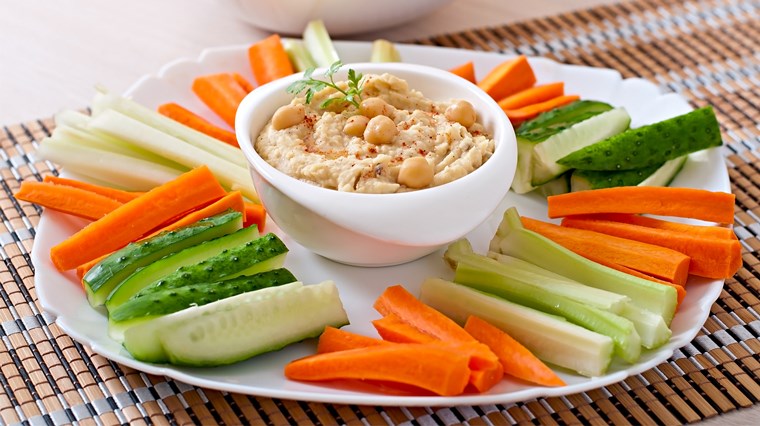
Nutrient-dense snack options can make your body and mind feel more energised and rejuvenated than those that are low in nutrients. Protein-rich snacks in particular help you become fuller faster and keep you feeling satisfied for longer compared to refined carbohydrates.
Weight-regulating hormones respond the most effectively to protein. When you eat protein, the hunger or appetite-stimulating hormone ghrelin reduces, and the hormone peptide YY that’s responsible for making you feel full increases.
By no means does this mean you should deprive yourself of high-quality, fibre-rich carbohydrates such as wholegrains during meals, as they also have an essential role on your plate – providing slow-releasing energy, lowering risk of heart disease and supporting digestive health.
However, being conscious of your snack choices can be beneficial. Consider trading refined, processed carbs that have been stripped of nutritional value (e.g. cookies and cakes) for protein-rich, nutrient-dense snack options. Many protein-rich snacks like nuts and seeds are also a valuable source of iron, which is essential for oxygen delivery around the body.
Check out our protein-rich snack ideas below:
- Nuts and nut butters; particularly almonds, pistachios and peanuts (although peanuts are technically legumes
- Hummus (served with nutritious celery or carrot sticks)
- Greek yoghurt (higher in protein compared to standard yoghurt)
Ideally, in terms of nuts, focus on unsalted varieties during your everyday nutrition as it’s easy to exceed your recommended daily sodium intake. When it comes to endurance running events like half marathon, marathon or ultramarathon, salted varieties are ideal to replenish your sodium levels – an essential electrolyte lost in sweat.
Check out Sports Nutrition: Healthy Carbs, Protein & Fats To Improve Performance & Recovery to learn more about nutrient-dense foods and how you can enjoy them as part of your balanced nutrition.
Magnesium deficiency may be mistaken for chocolate cravings
Why do you crave chocolate when you’re low in magnesium? It's because chocolate with a high cocoa content (70% cocoa solids and up) is a rich source of magnesium, while containing more nutritional value and less sugar than milk or white chocolate.
Making the switch to dark chocolate and enjoying it in moderation is a small change that can help support your healthy eating goals. You may even wish to add some cocoa nibs (crushed pieces of the cocoa bean, before sugar has been added) to your banana smoothie for an extra magnesium boost.
Of course, be aware there are plenty of other nutrient-rich foods to help increase your magnesium intake such as leafy greens (e.g. kale, spinach), banana, avocado, nuts and seeds, legumes and wholegrains. As always, a varied and balanced diet is key to support your overall health and happiness.
However, it can be challenging maintaining healthy magnesium levels by relying solely on diet. This can be particularly true of athletes as magnesium is lost in sweat. The research-based Pillar Performance magnesium supplements below contain carefully selected sources of magnesium based on their high bioavailability to increase absorption and support recovery.
You can read Magnesium Is Good For Muscle Cramps, Sleep & Recovery for more details on the benefits of this essential mineral and how to include it within your everyday nutrition.
If you believe you’re at risk of magnesium deficiency, it’s important you seek advice from your health care professional. They can provide guidance on personalising your nutrition plan to fulfil your specific magnesium requirements.
Quality sleep keeps you feeling more satisfied

When it comes to your nutrition choices – both what and when you eat - your sleep quality can have a profound influence. Sleep helps regulate and keep hormones in balance, including the ‘hunger' hormone ghrelin and the ‘satiety’ hormone leptin which is an appetite suppressant released by fat tissue when you're full.
Alternatively, poor or inadequate sleep can increase ghrelin and decrease leptin, resulting in overeating. When you overeat particularly in the hours before sleep, your digestion can be affected, creating a self-sustaining cycle of poor sleep and increased hunger.
Leaving 3 hours between dinner and bedtime is recommended, allowing your meal to move from stomach to the small intestine and reducing the risk of acid reflux or heartburn. However, trying to sleep when you’re hungry can also cause disrupted sleep, so a small, nutrient-dense snack before bed may be beneficial for some people.
Your everyday nutrition can also have an impact, with foods low in fibre and high in saturated fat potentially suppressing your ability to gain quality deep sleep, which is the most restorative phase of the sleep cycle.
High sugar diets may also make you take longer to fall asleep as sugar can overstimulate the brain. This can result in waking during the night with the potential for a spike then crash in blood sugar levels leading to increased thirst or appetite.
Fruits with natural sugars such as kiwifruit, bananas and strawberries, are a better option as a pre-sleep snack two hours before bedtime as they contain the amino acid tryptophan. Tryptophan has sleep-inducing benefits – able to be converted to serotonin or melatonin in the body to support quality sleep. Oats are another food rich in tryptophan, assisting in sleep regulation.
Quality sleep not only helps keep you more satisfied in terms of hunger, but also nurtures your emotional satisfaction. Being aware of how your food choices can affect your sleep and in turn, your mood and mental health can inspire you to enjoy nutrient-dense foods that are beneficial to your overall wellbeing.
For more information on the role of quality sleep in your life and tips to achieve it, check out:
Embrace the joy of movement

Exercise isn’t just about health or weight loss. There is joy in movement – and it’s empowering, whether you’re tapping into the tranquillity of a leisurely walk or the thrill of running a 5K personal best. Although it can be difficult to take that first step if you’re in a workout rut, lacing up in your running shoes and getting out the door for many of us is where the biggest challenge is.
Once you conquer that, the mood-boosting benefits of walking, jogging or running will have you feeling rejuvenated. With a little bit of momentum, it’s easier to remain consistent and committed to supporting your physical and mental health.
You’ll be less likely to battle yourself the next time you ask yourself “Should I go for a walk/jog/run?” if you focus on the immediate positive outcomes – your improved mood and self-confidence. Even if the answer doesn’t come naturally, this may give you the extra nudge you need to prioritise your mental wellbeing.
This immediate gratification will help motivate you and be a catalyst of the long-term benefits as well – improved heart health, muscle strength and energy that you can apply into all facets of your life.
For many of us, an active lifestyle also encourages us to make more nutrient-dense food choices as we become more conscious of how food can support health and vitality. High intensity exercise especially can result in you craving more nutritious foods like vegetables and fruits.
If you’re having trouble reaching for exercise motivation, try a variety of activities to see what resonates with you – gearing up with trail running shoes to enjoy the feel-good benefits of nature, cycling at the park, swimming at the beach, bouldering with friends, yoga or dance class.
Whatever way you move, you’re supporting the health and wellbeing of your mind and body. Even immediately after overindulging, a light 15 minute walk can help aid in digestion and provide relief from that sluggish, bloated feeling to get you back to feeling like yourself.
Just starting out in your running journey? This Couch To 5K running plan gives beginner runners guidance on reaching your goals.
Quick nutrition, exercise & mental health tips

Going to the dark side has its benefits
Chocolate can make you happy when enjoyed in moderation. If we look at the science behind it, chocolate contains mood-boosting endorphins and can even trigger a reward response from your brain with the release of the neurotransmitter dopamine.
The darker the better, as these benefits are attributed to the cocoa content. In terms of the highest nutritional benefits, reach for dark chocolate with at least 70% cocoa solids.
Dark chocolate also contains disease-fighting antioxidants in the form of phytonutrients such as flavonoids that may reduce the risk of cancer, having a protective effect on the cells of your body against harmful free radicals.
Are you hungry or dehydrated?
Cues from your body to hydrate can often be mistaken for hunger. Water has numerous benefits for your health and in Australia, plain water is safe to drink and equally as beneficial as bottled water – making this life-sustaining liquid easy to access without an increased price tag.
You can easily make plain water a little bit special by infusing with a slice of lime, berries or mint leaves. Incorporating natural flavours to water at home is a valuable ‘trick’ if you wish to transition away from sugary soft drinks without sacrificing an element of fun.
Nutritious food swaps like this when performed relatively consistently, can make a positive impact on your overall health. We recommend keeping a water bottle close by - at home, at work, when exercising - to make it convenient and easier to fulfill your hydration needs throughout the day.
For more practical hydration tips, check out:
Become a parkrun regular
Parkrun has helped hundreds of people across the globe get back on track of their health and happiness in a supportive and encouraging setting.
This weekly, volunteer-run 5km event is free of pressure and free of cost. It gives walkers, joggers and runners of every background and ability the opportunity to nourish their fitness and mental health within a like-minded community.
Keep your Saturday morning free for parkrun to keep inspired to move. Check out our top 5 parkruns across different Australian locations below.
- The Top 5 Sydney Parkruns
- The Top 5 Adelaide Parkruns
- The Top 5 Melbourne Parkruns
- The Top 5 Gold Coast Parkruns
- The Top 5 Brisbane Parkruns
- The Top 5 Canberra Parkruns
The wrap up: Be kind to yourself

Overindulging while on holiday or during special events like Easter won’t derail an overall healthy lifestyle, so you can breathe a sigh of relief. Although changes with metabolism naturally occur with age, overall your body is amazing at restoring its baseline weight and fitness after temporary, brief shifts, if you return to your usual nutrition and activity levels afterwards.
Enjoying food can be a social and emotional experience. A slice of cake at a birthday party or chocolate eggs at Easter isn’t something you should beat yourself up over – and for many of us it’s a part of culture, tradition and family bonding. Food can even be a source of nostalgia - a gateway into fond memories of joy, comfort or connection during childhood.
It’s OK to celebrate and food is often a key part of that. With methods like mindful eating that support health and happiness, enjoying 'treat' foods in moderation doesn’t have to be isolated to special events. It can form a part of your self-care, particularly when we talk about more nutrient-dense options like high-quality dark chocolate.
In terms of overindulging, 'falling off track' of your health and fitness can give you the motivation to get back up again – however it shouldn’t be out of guilt, it should be out of positivity and possibility – aspiring to reach for your goals.
Guilt is counter-productive and can hold you back, so let it go and give yourself the freedom to celebrate with a focus on self-care. Make your self-care a priority and positivity will follow.

